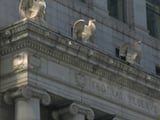I originally wrote this article for InvestmentNews back in 2008—forever ago, in the financial world. I want to revisit it now for a couple of reasons (and also because I’m kind of proud of it). First, I think it’s held up pretty well and is still applicable, despite all the changes since then. Second, it sets the stage for an extended conversation that’s becoming increasingly important for investors and advisors.
That conversation revolves around expectations—i.e., what are you trying to accomplish with the portfolio?—and risk. We have the standard questionnaires and measures of risk and return, but, based on my frequent conversations with advisors, I’m not sure those tools really capture the dynamics of what’s going on. We need to do better.










